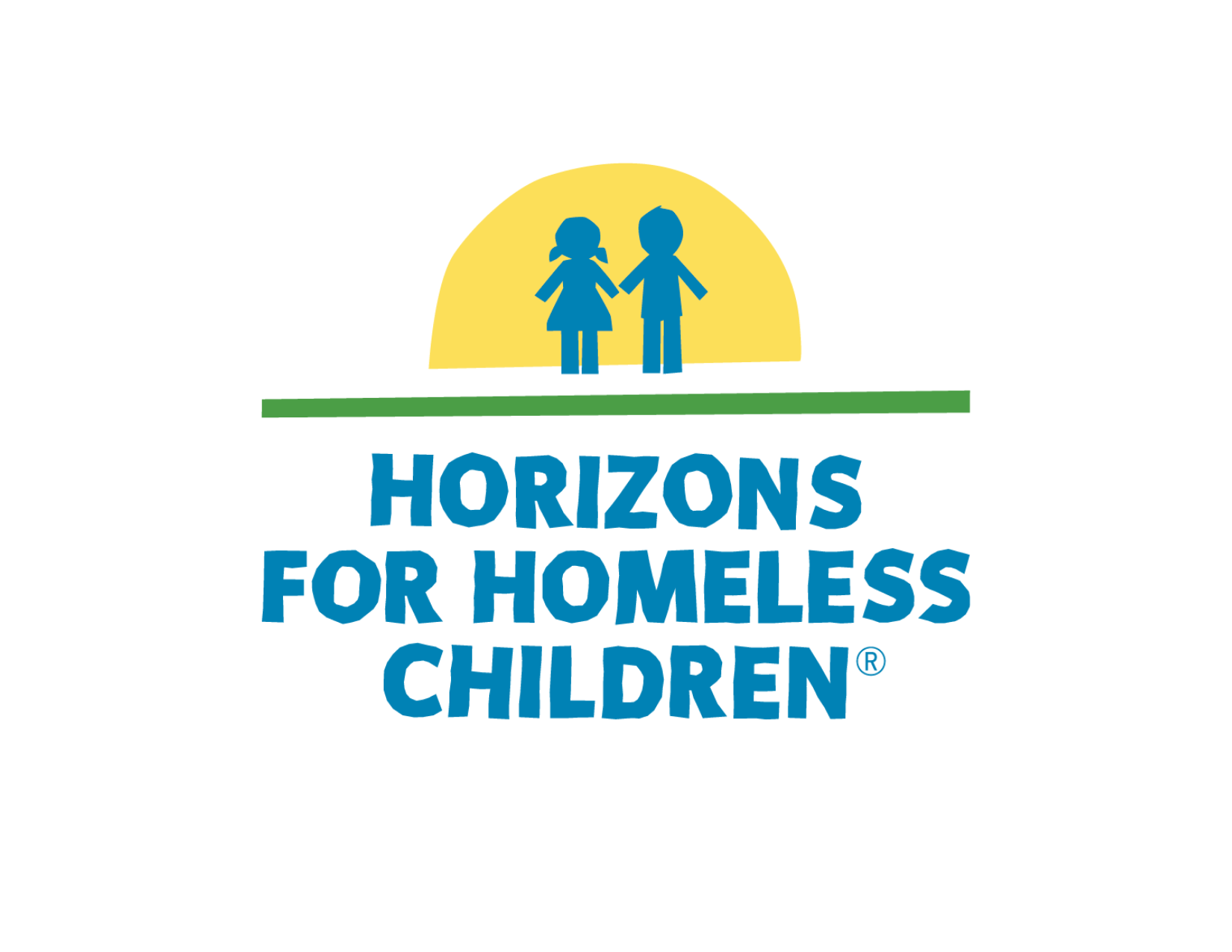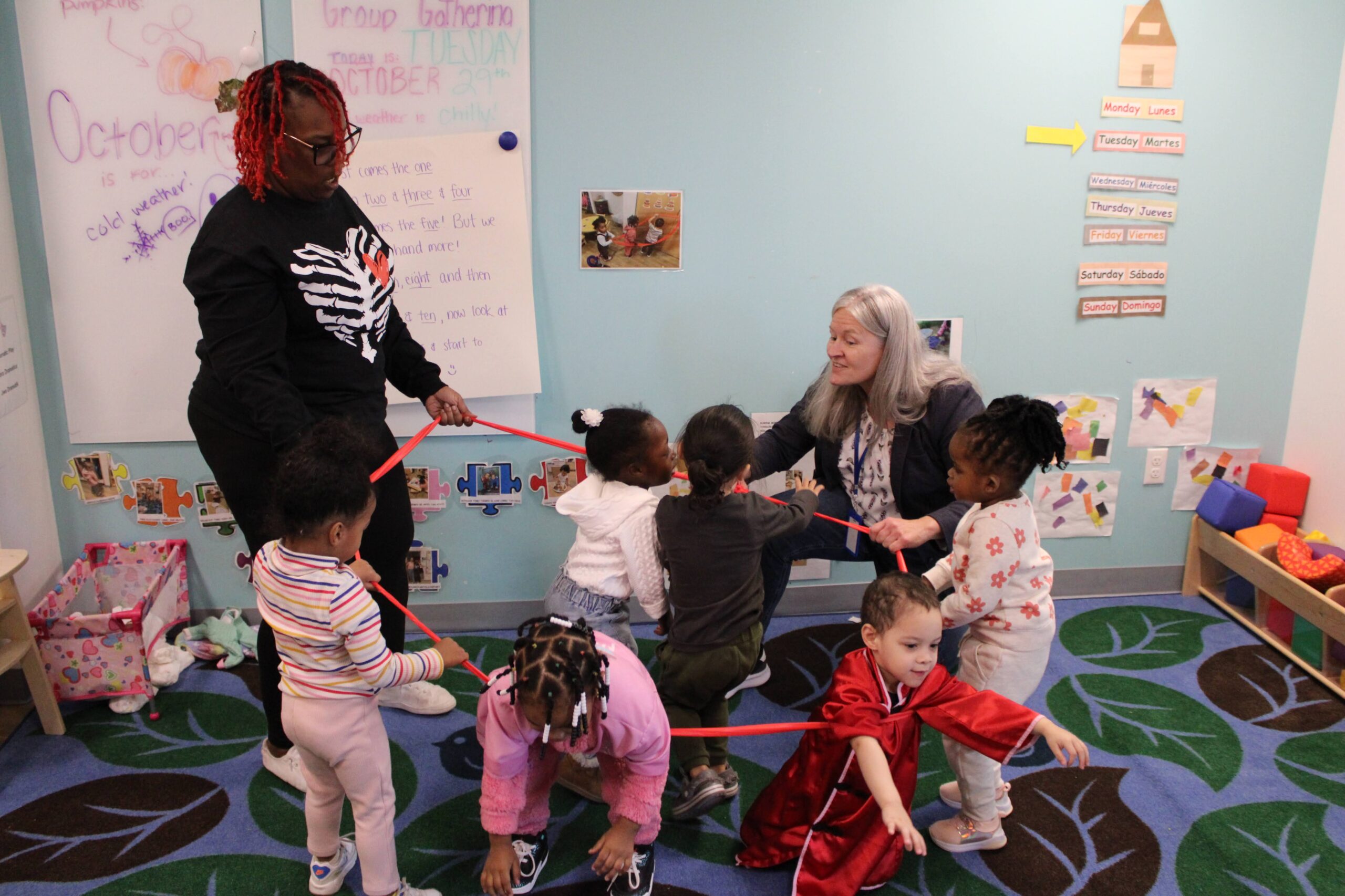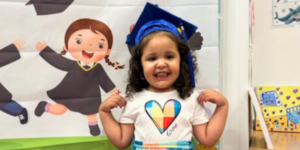Building Systems of Support for Early Inclusion
The experience of homelessness has profound implications on children. Due to the instability of their daily lives, children experiencing homelessness are four times more likely than other children to have developmental delay.1 Unsurprisingly, at Horizons, we’re seeing a higher incidence of delays amongst children relative to other early education programs. Horizons’ Inclusion Specialist reviews teacher administered assessments and uses observational reports to provide recommendations and strategies for accommodating identified needs.
The Connection Between Homelessness and High Needs
All children develop in stages, such as crawling, standing, and walking, with these skills typically developed on the floor. For parents living in shelters, they might be reluctant to put their baby on the floor for tummy time due to concerns about cleanliness and safety. Without a carpeted or clean space, an infant at Horizons might arrive with gross motor delays because they missed out on tummy time, which is crucial for developing neck, chest, upper arm, and back muscles. Although parents may intend to keep their child safe and clean, the unintended consequence is that the child misses important physical milestones.
In a shelter, infants may be exposed to multiple languages— their native language if different than English, perhaps a second language spoken in communal areas, and now English at school. It is understandable that a child trying to filter three different languages simultaneously may struggle with grasping any of them. Horizons teachers often recognize language delays when children arrive in the program.
Social-emotional attachment can also be a challenge. Parents who have experienced trauma may have difficulty providing consistent emotional support, affecting their children’s regulation and development. A lifestyle involving frequent moves or shelter living means children may miss out on forming lasting bonds, which can manifest as dysregulation or difficulty separating from their parents when they enter the classroom.
The Role of the Early Education Inclusion Specialist
Horizons has long prioritized creating a trauma-informed environment, and training and education for teachers have been central to this effort. As the number and diversity of high-needs children in Horizons classrooms grew, the need for additional support was recognized, leading to the hiring of an Early Education Inclusion Specialist.
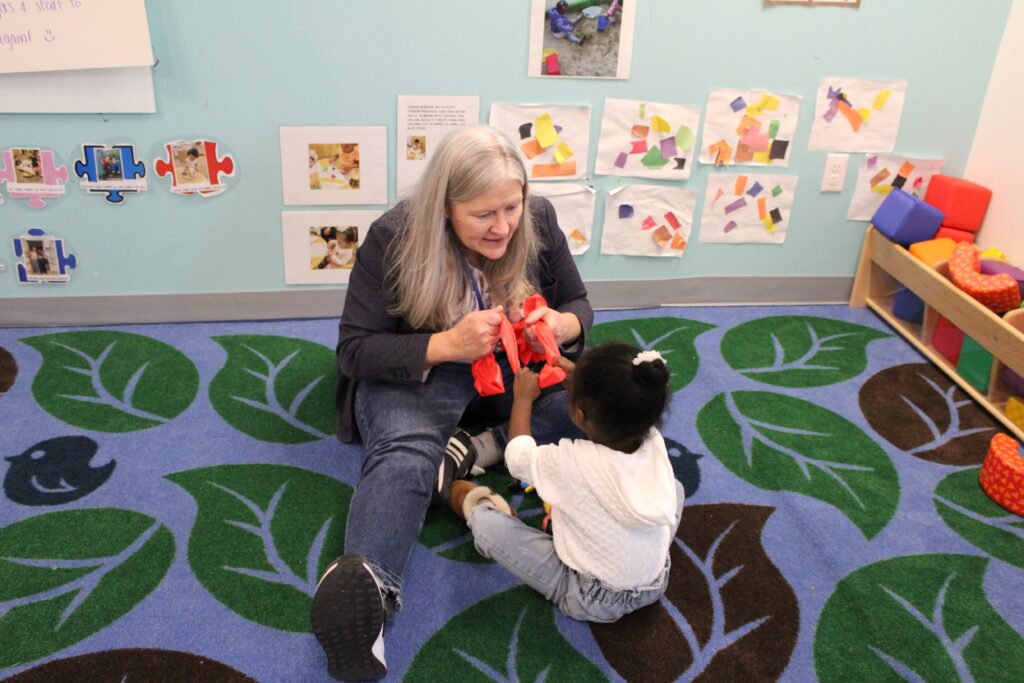
Elizabeth has noted recurring themes in her observations and recommendations. “When I realized there were some pervasive challenges children were facing, we moved to apply a universal design approach. We took some recommendations and made them broadly applicable, benefiting all the children in the classroom,” Elizabeth shared. For example, when a child was not speaking and not following directions, Elizabeth created picture cards depicting daily activities. Instead of just announcing it was time to go to the playground, teachers could use a card with a photo of the playground to support the child who didn’t understand English. This approach helped the child understand transitions, reduced dysregulation, and made the classroom more inclusive.
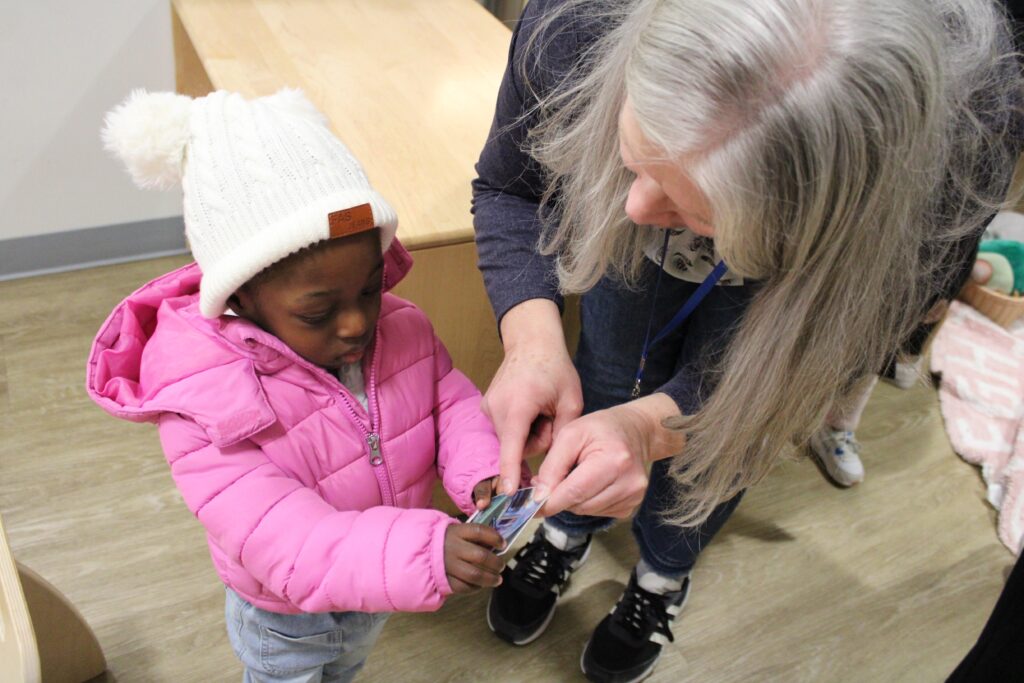
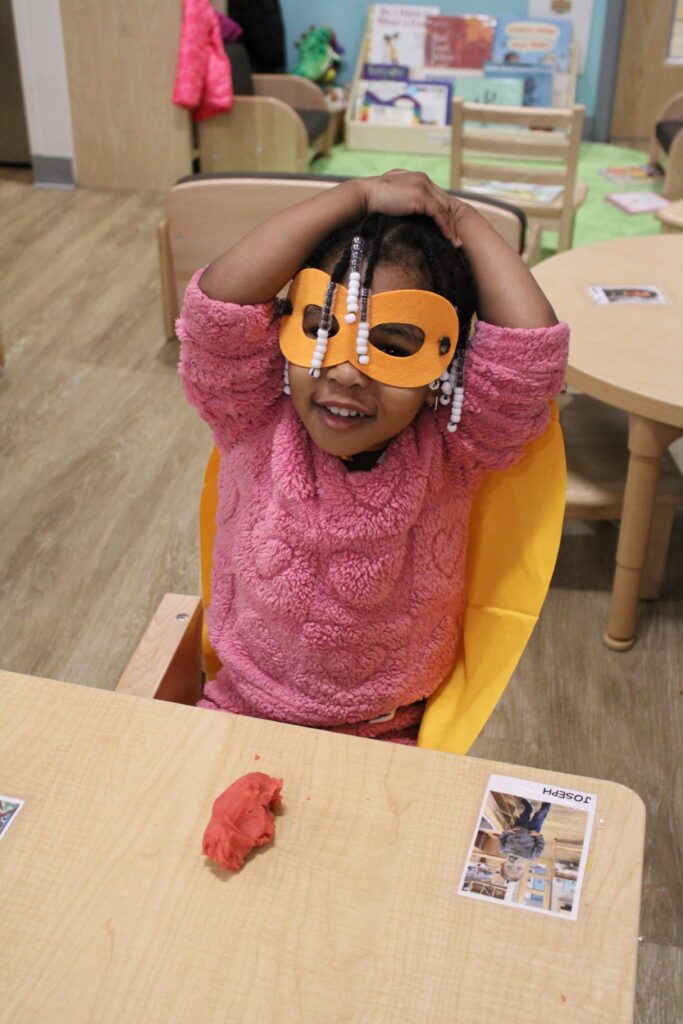
Gross motor delays in some children can also be addressed. For example, one child’s gross motor deficits made sitting in a standard armless toddler chair difficult. Elizabeth provided a special chair that was more supportive and matched the classroom’s color scheme. This adaptation kept the child safe while minimizing disruptions. The chair being the same color as others made it one that fit right in, not causing undue attention on the child who needed it. In the meantime, outside Early Intervention support was called to support the child with physical and occupational therapies.
Consistency and regularity are essential in Horizons classrooms. Children who have experienced homelessness face frequent unpredictability. Offering consistency and regularity helps counteract the natural fight-or-flight response and enables children to form secure, trusting connections with responsive and caring adults. Classroom schedules consistently create an environment where children experience patterns of activity each day.
The earlier challenges are identified, the more effective the strategies will be in the long term. “Creating inclusive classrooms benefits all children accommodating diverse learning needs and addressing disparities that often emerge as early as preschool, particularly for children from marginalized communities,” said Jayd Rodrigues, Executive Director of Early Education. “An inclusion specialist plays a crucial role in providing teachers with the necessary support to ensure that every child can fully engage in the learning process. It is essential that every child has access to high-quality early education and the opportunity to actively participate in their own learning journey.”
